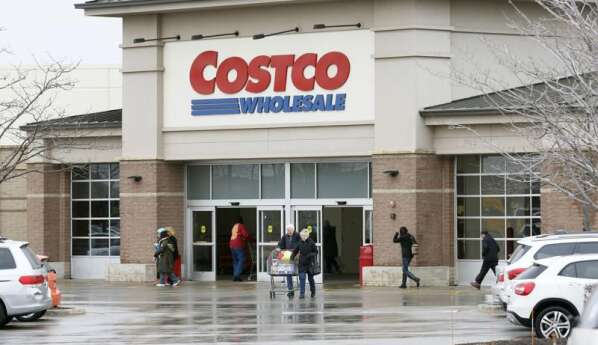Shoppers visit the Costco at 75th Street and Route 59 in Naperville. The city will replace the state’s 1% grocery tax with a local tax.
Daily Herald file photo
Naperville shoppers will continue paying a 1% tax on their groceries.
Following the lead of several neighboring communities, Naperville city council members this week voted 5-4 to replace the state’s 1% grocery tax with a local tax.
Last year, Gov. JB Pritzker signed a law repealing the 1% statewide grocery tax. The law allows cities to enact their own grocery tax to maintain the status quo.
City officials estimated that without a replacement tax, Naperville would have lost roughly $6.5 million a year in revenue.
Initially, the council was expected to vote on a proposed .25% increase in Naperville’s home rule sales tax instead of extending the grocery tax. Still, it approved the grocery tax, which had been discussed at previous meetings.
Councilman Benny White said he went “back and forth” between the two options.
“In the end, it’s a tax that’s been in effect for a long time,” he said of the grocery tax. “We’re not raising it; we’re just maintaining it.”
Others echoed a similar sentiment, noting that both options involved regressive taxes.
“It was the lesser of two evils for me,” Councilwoman Allison Logenbaugh said of the grocery tax.
The city’s finance department and financial advisory board recommended approval of the local grocery tax.
Supporters also noted a grocery tax would not adversely affect retail businesses who would have to pass on a new tax to its customers.
“Every edge we can give our businesses in town is a win,” Kaylin Risvold, president and CEO of the Naperville Area Chamber of Commerce, told council members. “When our businesses succeed, they help shoulder more of the tax burden, easing it for our residents.”
Those opposed to the grocery tax, however, argued it is a tax on food at a time when food insecurity continues to increase. Consumers pay $1 for every $100 spent on groceries.
“I think it’s very unfortunate that at a time when those who are financially struggling are seeing cuts to their SNAP benefits, we are choosing to tax groceries when there are other options available,” Councilman Ian Holzhauer said.
Supporters of the grocery tax noted a home rule sales tax increase would affect some essential items — such as diapers, cleaning supplies or toilet paper. They added that revenue from a home rule sales tax increase was more likely to fluctuate based on consumer spending, while income from the grocery tax has remained steady through the years.

Gerald Steele is the founder of Stonegate Health Rehab. He shares expert insights, recovery tips, and rehab resources to support individuals on their journey to wellness.
